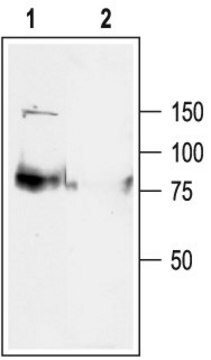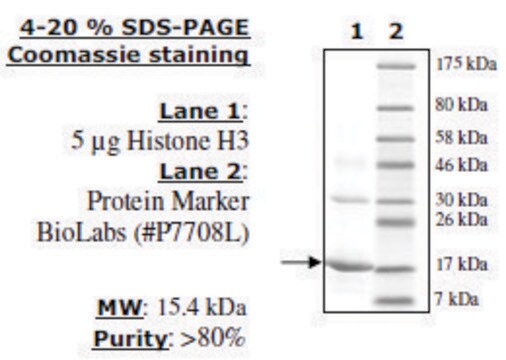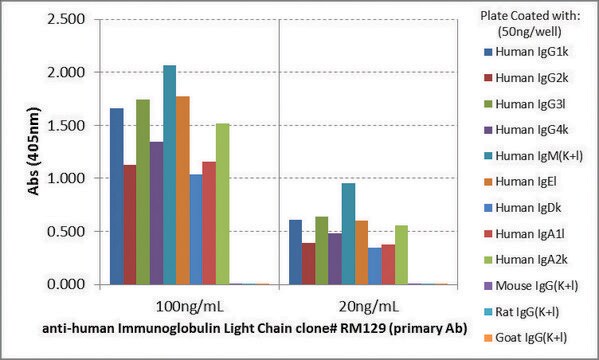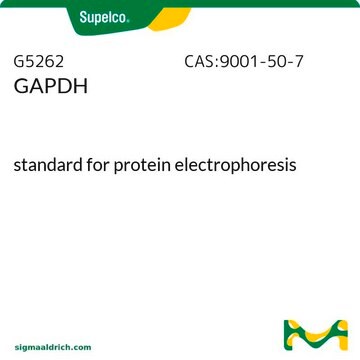SRP6088
AKR1C3 human
recombinant, expressed in E. coli, ≥90% (SDS-PAGE)
Synonym(s):
Aldo-keto reductase family 1 member C3, DD3, DDX, HA1753, HAKRB
Sign Into View Organizational & Contract Pricing
All Photos(1)
About This Item
UNSPSC Code:
12352200
NACRES:
NA.32
Recommended Products
biological source
human
recombinant
expressed in E. coli
assay
≥90% (SDS-PAGE)
form
liquid
mol wt
39 kDa
packaging
pkg of 100 μg
NCBI accession no.
shipped in
dry ice
storage temp.
−70°C
Gene Information
human ... AKR1C3(8644)
General description
Aldo-keto reductase family 1 member C3 in humans is encoded by the AKR1C3 gene. This enzyme catalyzes the reduction of prostaglandin (PG) D2, PGH2 and phenanthrenequinone (PQ), and the oxidation of 9alpha, 11beta-PGF2 to PGD2. It may play an important role in the pathogenesis of allergic diseases such as asthma, and may also have a role in controlling cell growth and/or differentiation.
Physical form
1 mg/mL solution in 20 mM Tris-HCl buffer (pH 8.0) containing 10% glycerol.
Preparation Note
Centrifuge the vial prior to opening.
Other Notes
MGSSHHHHHH SSGLVPRGSH MDSKHQCVKL NDGHFMPVLG FGTYAPPEVP RSKALEVTKL AIEAGFRHID SAHLYNNEEQ VGLAIRSKIA DGSVKREDIF YTSKLWSTFH RPELVRPALE NSLKKAQLDY VDLYLIHSPM SLKPGEELSP TDENGKVIFD IVDLCTTWEA MEKCKDAGLA KSIGVSNFNR RQLEMILNKP GLKYKPVCNQ VECHPYFNRS KLLDFCKSKD IVLVAYSALG SQRDKRWVDP NSPVLLEDPV LCALAKKHKR TPALIALRYQ LQRGVVVLAK SYNEQRIRQN VQVFEFQLTA EDMKAIDGLD RNLHYFNSDS FASHPNYPYS DEY
Storage Class
11 - Combustible Solids
wgk_germany
WGK 3
flash_point_f
Not applicable
flash_point_c
Not applicable
Certificates of Analysis (COA)
Search for Certificates of Analysis (COA) by entering the products Lot/Batch Number. Lot and Batch Numbers can be found on a product’s label following the words ‘Lot’ or ‘Batch’.
Already Own This Product?
Find documentation for the products that you have recently purchased in the Document Library.
Ales Sorf et al.
Cancers, 12(6) (2020-06-21)
Pharmacotherapy of acute myeloid leukemia (AML) remains challenging, and the disease has one of the lowest curability rates among hematological malignancies. The therapy outcomes are often compromised by the existence of a resistant AML phenotype associated with overexpression of ABCB1
Our team of scientists has experience in all areas of research including Life Science, Material Science, Chemical Synthesis, Chromatography, Analytical and many others.
Contact Technical Service







